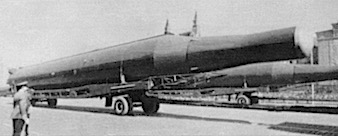Major [John] Richardson
New York: Pollard & Moss, 1888
113 pages
A forgotten novel about forgotten bloodshed, Hardscrabble isn't about the fall of Chicago because at the time there was no Chicago. It does concern an April 1812 assault on a farm, Hardscrabble, which was located south of the South Branch of the Chicago River. Winnebago warriors killed two men, while two others escaped.
And so the fiction begins. In Richardson's imaginings, the farm belongs to a man named Heywood, who "by dint of mere exertion and industry" amassed a small fortune in the wilds of Kentucky. He then moved on to South Carolina, where he took as his wife a woman with an even greater fortune. After that, it was back to the Bluegrass State, where he killed a man just to watch him die.
I jest.
Heywood kills a lawyer from a prominent family in a duel – no cause of contretemps given – and then fearing retribution, flees west with his wife and daughter. In the Territory of Illinois they establish two homes, the nicer being a charming cottage across the river from Fort Dearborn. The other dwelling is, of course, the farmhouse at Hardscrabble.
As in many a historical novel, romance trumps fact. Hardscrabble existed, but it belonged to men named Russell and Lee, neither of whom were present at the time of the killing. Heywood, his wife, and his daughter are fictions. Ensign Ronayne too is a fiction, as is Captain Headley, though a strong argument may be made that the latter is modelled on Captain Nathan Heald, who was from 1810 to 1812 Fort Dearborn's commander.
This student of the War of 1812 expected Fort Dearborn to fall – something to do with the title, you understand – but this never happens. I suggest nothing ribald in writing that the climax comes during the July 4, 1812 wedding of Maria Heywood and Ensign Ronayne. I won't spoil anything either, except to say that there is strong implication that another man's love for Maria will lead to Fort Dearborn's destruction.
The ending is abrupt, as if Hardscrabble, like Richard Rohmer's Ultimatum, is the first half of a longer novel. Sure enough, Wau-nan-gee; or, The Massacre of Chicago, followed its publication.
I've not read it, and likely never will.
Clearly, Hardscrabble is not the place to start in on Richardson. I read it only because I happened upon a copy being sold for a dollar and had long been intimidated by Wacousta. Richardson's big book in more ways than one, my Carleton University Press Centre for Editing Early Canadian Texts edition amounts to 688 dense pages. The Canadian Brothers, its sequel, is very nearly as long. Hardscrabble seemed much more manageable.
My judgement is no doubt influenced by irritation over its bait and switch title. While the romantic dialogue between Maria and Ronayne is strained, Hardscrabble is well written. At the very least, it's interesting as a novel of the months leading up to the War of 1812 written by a man who had lived through the conflict. And so, I'm willing to read more Richardson.
Wacousta?
No, I'm more interested in his risqué The Monk Knight of St. John, which is set during the Crusades and features a countess Richardson scholar David Richard Beasley refers to as a "Fatal Woman."
Now, if I can only find a copy for a dollar.
At this early period of civilization, in these remote countries, there was little distinction of rank between the master and the man – the employer and the employed. Indeed the one was distinguished from the other only by the instructions given and received, in regard to certain services to be performed. They labored together – took their meals together – generally smoked together – drank together – conversed together, and if they did not absolutely sleep together, often reposed in the same room.
Object and Access: A cheap, very delicate paperbound book. Mine is falling apart, revealing a glue remarkably similar in colour to that used on the front cover. It was was purchased five years ago.
The novel first appeared serialized in Sartain’s Union Magazine of Literature and Art (February - July, 1850). It was first published in book form in 1854 by DeWitt & Davenport, two years after Richardson's death. My 1888 Pollard & Moss edition appears to have been the last.
As I write this, no copies of the first edition are listed for sale online, though two American booksellers are offering hardcover copies – in variant bindings – of the 1888 Pollard & Moss edition. At US$150.00 and US$159.50 respectively, War of 1812 obsessives may find them tempting.
You're out there, right?



























































